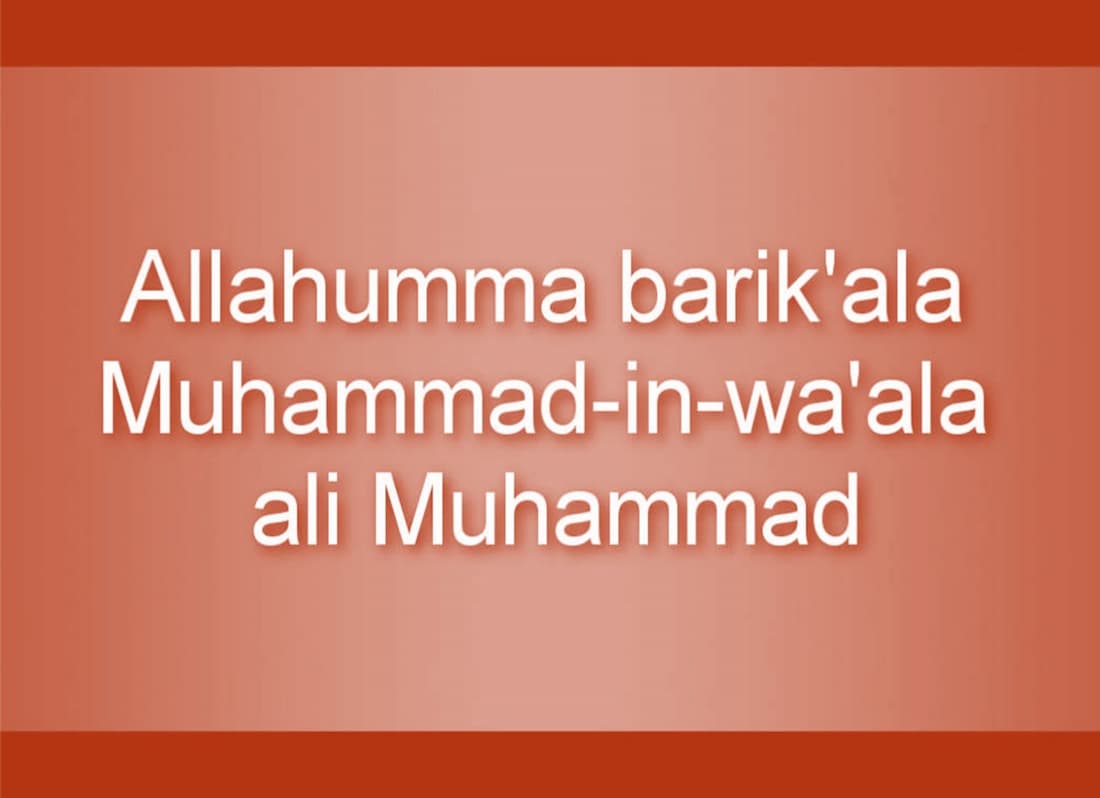Understanding The Meaning Of Allahumma Barik Laha
In the realm of Islamic expressions, certain phrases hold profound significance, resonating deeply with the hearts of believers. One such phrase is "Allahumma Barik Laha," which translates to a heartfelt supplication for blessings. This phrase is often uttered on special occasions, particularly weddings, as a way of invoking God's favor upon an individual, usually a bride. The beauty of this expression lies not only in its linguistic elegance but also in its spiritual depth, encapsulating the essence of goodwill and divine grace that we wish for our loved ones.
The term "Allahumma" is a direct invocation to God, emphasizing a personal connection between the speaker and the divine. By following it with "Barik Laha," one is requesting blessings specifically for the person in question. The significance of this phrase extends beyond mere words; it symbolizes the community's support and encouragement for the individual embarking on a new chapter in life. The blessings requested are not only material but also encompass happiness, health, and spiritual well-being, making it a holistic prayer for the recipient.
As we delve deeper into the meaning of "Allahumma Barik Laha," we will explore its origins, usage, and the emotional weight it carries in the context of relationships and community. This exploration will not only clarify the phrase's significance but also illustrate how language can be a powerful tool for expressing love and support in the Islamic faith.
What is the Literal Translation of Allahumma Barik Laha?
The phrase "Allahumma Barik Laha" can be broken down into two main components for a clearer understanding of its literal translation. "Allahumma" translates to "O Allah" or "O God," a call to the Almighty. "Barik" stems from the Arabic root word "barakah," which means to bless or to bring abundance. "Laha" refers to "her," indicating the person receiving the blessings, often a bride. Thus, the phrase collectively means, "O Allah, bless her." This simple yet profound expression encapsulates a wish for divine favor and prosperity.
Where is Allahumma Barik Laha Commonly Used?
Allahumma Barik Laha is predominantly used during significant life events such as weddings, engagements, and other celebrations. In a wedding context, guests often recite this phrase to wish the bride happiness and blessings in her new life. It serves as a reminder of the support from family, friends, and the community, creating a spiritual atmosphere filled with love and positivity. Beyond weddings, this phrase can also be used in various ceremonies where blessings are sought for someone embarking on a new journey or phase in life.
Why is Allahumma Barik Laha Important in Islamic Culture?
In Islamic culture, blessings are considered vital for a prosperous life. The act of invoking Allah's blessings signifies a communal bond and the shared hopes of individuals for each other's success and happiness. Saying Allahumma Barik Laha not only reflects the speaker's good intentions but also strengthens the social fabric by promoting a culture of support and kindness. Furthermore, it serves as a reminder of the divine presence in everyday life, encouraging individuals to seek God's favor in all endeavors.
How Does Allahumma Barik Laha Strengthen Relationships?
Expressions of goodwill such as Allahumma Barik Laha play a crucial role in fostering strong relationships within the community. When individuals take the time to pray for each other's well-being, it cultivates an atmosphere of mutual respect and care. The act of invoking blessings for someone else can strengthen bonds, making the relationships more meaningful and resilient. It encourages individuals to celebrate each other's achievements and support one another during challenging times, reinforcing the idea that we are all interconnected.
What are the Spiritual Benefits of Saying Allahumma Barik Laha?
Reciting Allahumma Barik Laha is not only beneficial for the recipient but also for the speaker. This act of selflessness serves as a reminder to prioritize the well-being of others, fostering a sense of gratitude and humility. Spiritually, it connects individuals to their faith, reinforcing the belief in God's boundless mercy and blessings. Furthermore, it encourages a positive mindset, promoting optimism and hope in the face of life's challenges. The spiritual journey is often enriched by the blessings we wish for others, creating a ripple effect of kindness and compassion.
Can Allahumma Barik Laha Be Used Outside of Weddings?
Absolutely! While Allahumma Barik Laha is most commonly associated with weddings, it is not limited to such occasions. This phrase can be used whenever one wishes to invoke blessings for someone, whether it's a friend starting a new job, a family member welcoming a new baby, or anyone embarking on a significant life change. The beauty of this expression lies in its versatility, making it a valuable addition to any celebratory moment.
Conclusion: Embracing the Meaning of Allahumma Barik Laha
In conclusion, the phrase Allahumma Barik Laha embodies a heartfelt wish for divine blessings, encapsulating the essence of love, support, and community in Islamic culture. Its significance extends beyond weddings, serving as a reminder of the interconnectedness of individuals and the importance of seeking God's favor for one another. By embracing the meaning of Allahumma Barik Laha, we cultivate a culture of kindness, gratitude, and spiritual growth, enriching our lives and the lives of those around us.
Article Recommendations
- Expressionism Self Portrait
- Healthy Baked Chile Relleno Recipe
- Manila Airport Money Changer
- Evergreen Laundromat
- Jonathan Bailey Height
- Are Keri Russell And Kurt Russell Related
- Ihad Kroeger Married
- Porterville Ca
- Rosemarie Fritzl
- How To Make Your Candles Smell Stronger


